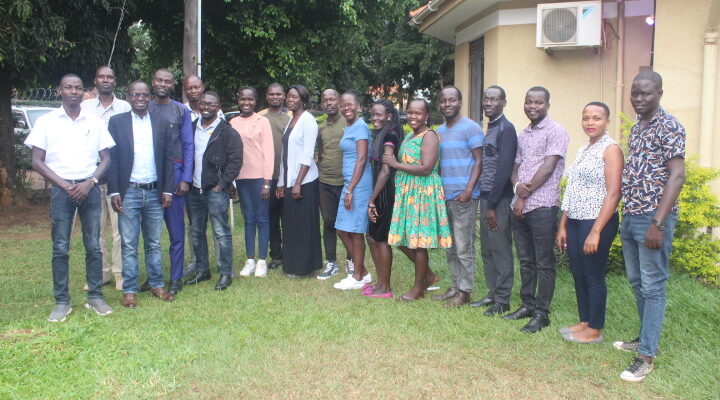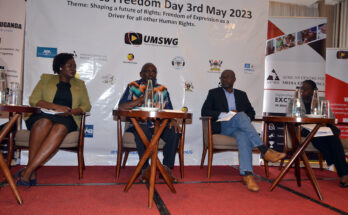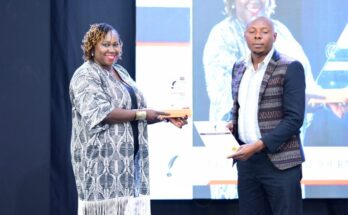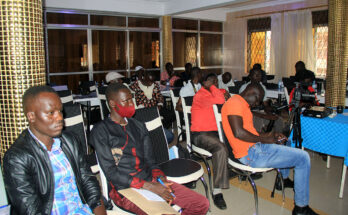PHOTO: A group of editors from northern Uganda pose for a photo in Gulu recently.
If editors want to maintain high-quality journalism in their newsrooms, they need to work independently by adhering to media ethics. To effectively do that, editors need to practice ‘self-regulation’ – being able to understand and manage their feelings and reactions to things while focusing on a given task. That was a loud call delivered by trainers from the Uganda Editors’ Guild, an association of senior editors and professional media practitioners, jointly with Northern Uganda Media Club (NUMEC), during a training workshop in Gulu city on March 12th.
“Editors need to have values that drive them,” says Catherine Ageno, who is also a Broadcast Editor at Nation Media Group. “You cannot have good quality journalism without following media ethics. As an editor, you have to set your goals, self-monitor and self-reinforce yourself to ensure that you are doing the right thing repeatedly”.
Ms Ageno, who has spent 20 years in journalism practice, and one of the lead discussants during the workshop further explained that self-regulation should be a ‘pledge’ made by ‘quality conscious editors who are also able to dialogue’ with the public who are the news consumers. “Good journalism breeds public confidence,” she noted, adding that this can only be achieved by newsrooms when they “hire only professional journalists”.
Julius Ocungi, the Uganda Radio Network Bureau Chief for West Acholi, said the only silver bullet for editors to work while following media ethics is “if they decide to do it out of their own personal will”, adding that “talking about media ethics without putting it into action wouldn’t change anything”.
Moses Odokonyero, a media trainer, also tasked all newsrooms to develop a complaint mechanism for the public to give feedback on the journalistic content produced, arguing that such avenues can ‘work as a form of quality assurance’.
Too often, Ms Ageno emphasized that editors need to ‘build a strong bond’ with each other to have ‘one collective voice when it comes to promoting press freedom’. Nowadays, she added, newsrooms are affected by a myriad of challenges – with safety for journalists being on top.
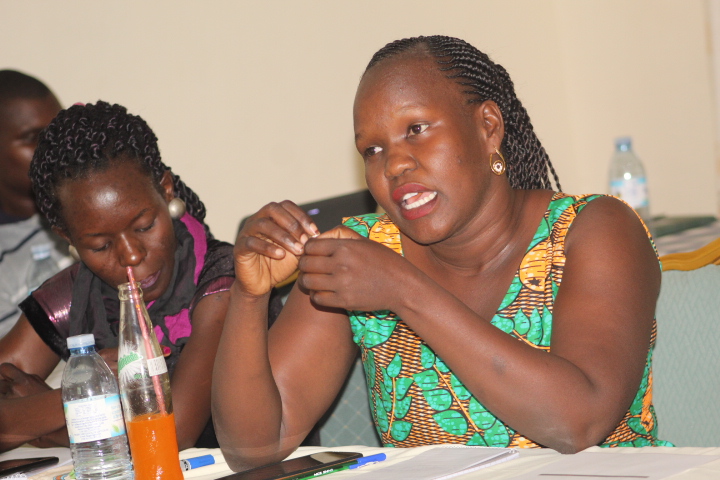
“We need to be safe at the workplace,” she said. Sexual harassment, for instance, she says is one of them. A 2021 study by WAN-IFRA showed that almost half of the African women experienced some form of sexual harassment in the newsroom, yet only 30 per cent of the case were reported to the management. Ms Ageno feels strongly that it’s high time editors kept a wistful eye whenever journalists are sexually harassed by acting collectively, stamping out the vice: “If not, then it will not be safe for female journalists to work and this will affect their productivity”.
Charles Akena, NUMEC Programs Coordinator, reiterated that partnerships and collaborations among news editors from various media houses, saying such collaboration “helps to build a strong force amid the ‘shrinking civic space”.
Felister Auma, the news editor at Radio Pacis, urged all newsrooms to develop sexual harassment policies, adding that the Uganda Editors’ Guild should also engage the owners of the media house to address issues concerning gendered newsrooms.
The one-day training for upcountry editors was organised by the Uganda Editors’ Guild in partnership with NUMEC.

